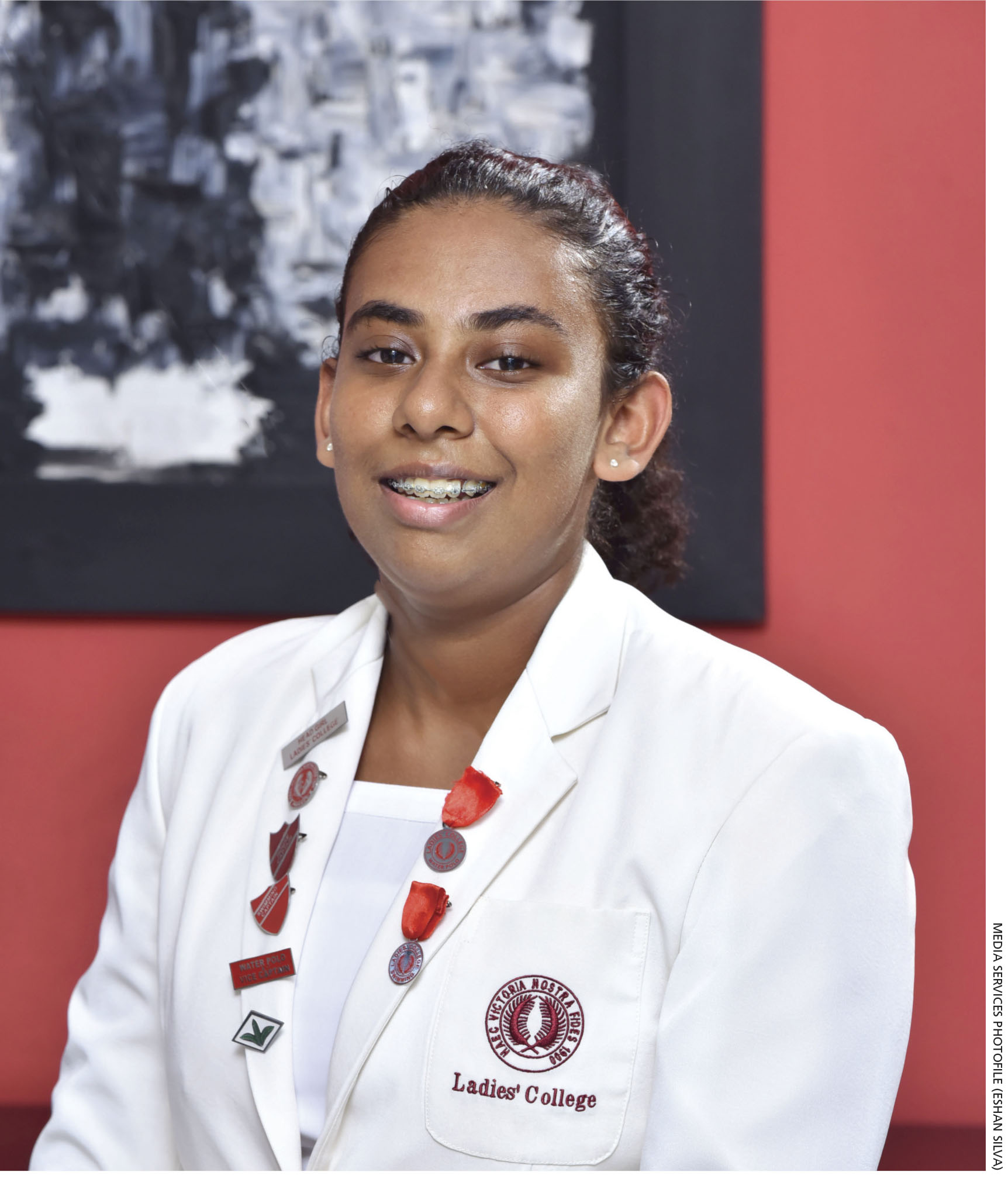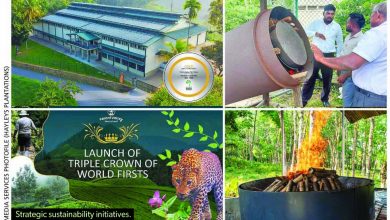YOUTH FORUM

Compiled by Nicola Jayasundera
THROUGH THE EYES OF YOUTH
Treasa Adams cites the quality of education and good governance for progress

Q: What’s the good, the bad and the ugly in Sri Lanka?
A: The good is the resilience of the Sri Lankan people. From the conflict to the economic crisis in 2022, we have faced numerous challenges and stood strong, rising to the occasion with courage and determination.
The bad is how people often settle into their circumstances. We often live comfortably but while this is seemingly positive, it can hinder development and limit opportunities for improvement.
The ugly is how the past continues to shape our present. Unlike countries such as South Africa, Sri Lanka never underwent a true reconciliation process post the conflict. Many wounds remain open and tensions exist beneath the surface, fuelling cycles of misunderstanding and frustration that affect us to this day.
Q: And what are the challenges facing the nation today?
A: Sri Lanka is still grappling with the aftermath of the economic crisis. The rising cost of living and youth unemployment have triggered a major brain drain with many skilled individuals seeking opportunities overseas, disrupting the country’s development.
Another ongoing challenge is the stigma surrounding topics such as mental and sexual health. These are rarely discussed in schools or homes – and often considered embarrassing. As a result, many young people remain misinformed and unsupported during critical stages of their lives.
Q: Do you believe that Sri Lanka will be united one day – and if so, why?
A: The country will be united in the future as our generation didn’t grow up with the same divisions as previous generations did. We are open to liberal ideas, and embrace diversity and inclusivity, which enables us to move past old divides and work towards a united society.
Q: Where do you see yourself in 10 years?
A: I see myself working in an international organisation such as the UN, where I can contribute to meaningful change with a focus
on policy creation that supports developing countries like ours.
Q: And where do you see Sri Lanka in a decade from today?
A: Sri Lanka has the potential to flourish and be in a much better place in 10 years. We are rich in talent, culture, nature and resources. With a greater emphasis on the quality of education and good governance, meaningful progress is possible.
However, we must address the root issues that continue to hold us back – particularly corruption and inefficiencies. The encouraging sign is that the youth are stepping forward, raising awareness and offering solutions to the country’s challenges. This offers hope for the future.
Q: Who is responsible for climate change and global warming – and what must be done about it?
A: Society as a whole is responsible.
From burning plastic to choosing to use vehicles, everyone has contributed in some way to the environmental damage affecting our planet.
To tackle this, the responsibility lies with all of us – from those in positions of power to everyday citizens. Everyone has a role to play; and only through collective action can the effects of climate change be minimised.
Q: How do you view the growing importance of social media today?
A: Social media is undoubtedly a powerful tool today, being a voice for the voiceless and connecting people across the globe. However, what truly matters is how it’s used.
Among the younger generations, social media is often misused, leading to harmful comparisons, low self-esteem and mental health challenges. And misinformation, cyberbullying and catfishing make matters worse.
When used responsibly, social media can be a platform for learning, raising awareness, inspiring others and expressing oneself. To ensure it remains a positive space, parents, teachers and policymakers must set clear boundaries and take greater responsibility in protecting the youth.
Q: And where do you see the world in 10 years’ time?
A: With advancements in AI and technology across fields such as medicine, agriculture and more, the world could become a better place. We may even see breakthroughs such as a cure for cancer or effective solutions to climate change.
However, not all change is positive. Ongoing political turmoil – from the conflict in Gaza and war in Ukraine to civil unrest in Sudan – poses a threat to global peace and human rights.
Additionally, disputes over vital resources such as land and water are emerging as urgent global issues. Ultimately, the world we see in 10 years will depend on the choices we make today.







